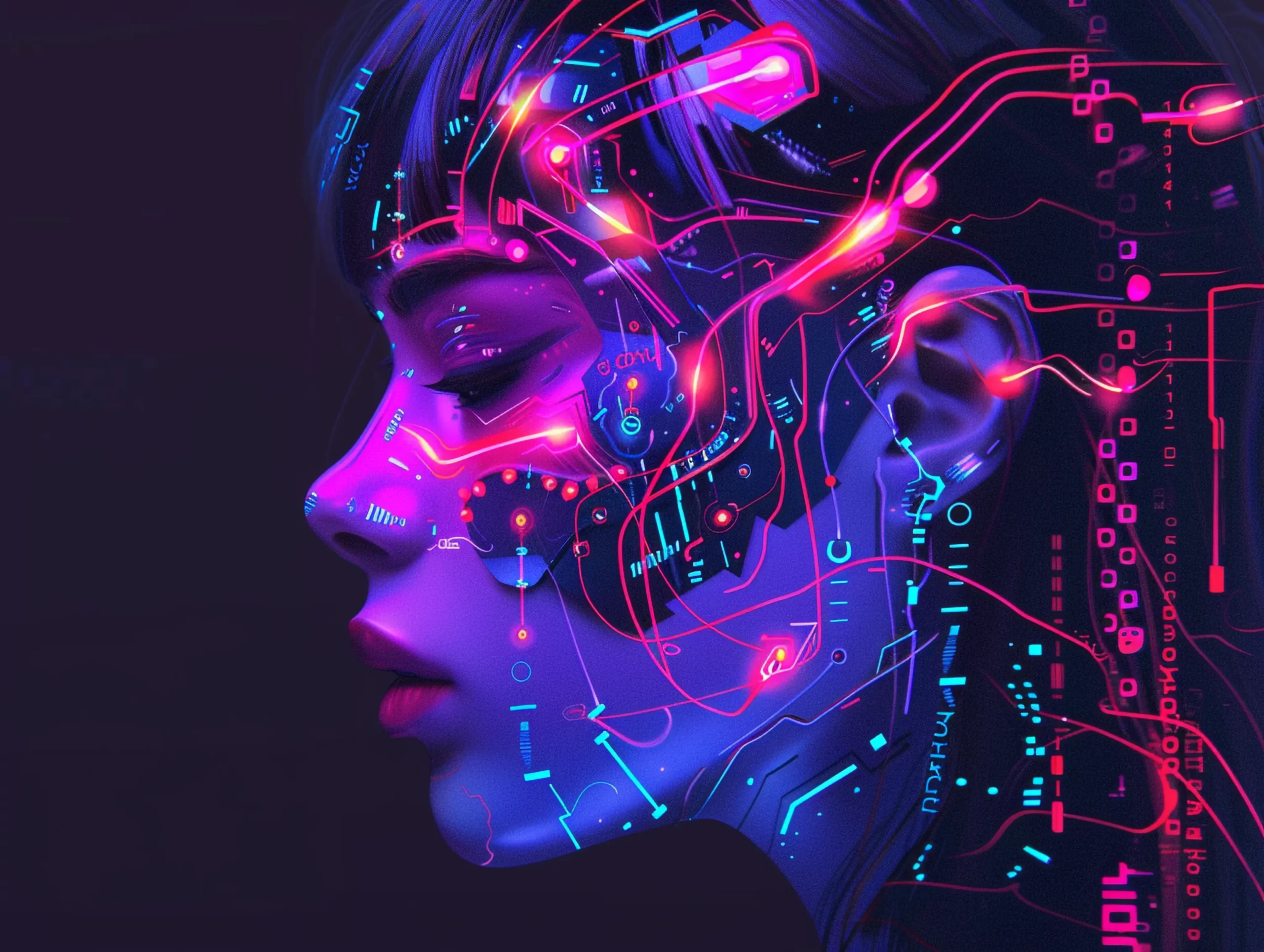Artificial Intelligence (AI) has evolved from a science fiction concept to a driving force in the development of digital solutions. Currently, AI is redefining how we interact with technology, optimizing processes, and boosting innovation across virtually every sector. But what is the true impact of AI today, and what can we expect for the future?
AI in the Present: Transforming the Digital Landscape
AI is already deeply embedded in various digital solutions we use daily, often without realizing it:
Personalized User Experience: AI algorithms analyze behavioral data to offer personalized content and tailored product and service recommendations, as seen on streaming platforms, e-commerce sites, and social media networks. This not only enhances user satisfaction but also increases engagement and conversion rates.
Intelligent Automation: From chatbots providing 24/7 customer support to Robotic Process Automation (RPA) in complex operations, AI is taking over repetitive and rule-based tasks. This frees up human resources for more strategic activities, increasing efficiency and reducing operational costs.
Advanced Data Analysis: AI’s ability to process and analyze vast volumes of data in real-time is unparalleled. This allows companies to identify patterns, predict trends, and make more assertive data-driven decisions, whether in optimizing marketing campaigns or detecting fraud.
Cybersecurity: AI plays a crucial role in protecting systems and data. Machine learning algorithms can identify anomalies and suspicious behaviors, proactively detecting cyber threats and preventing attacks.
Health and Well-being: In healthcare, AI assists in the early diagnosis of diseases, the development of new medications, and the personalization of treatments. Wearable devices with AI monitor vital signs and provide valuable insights into an individual’s health.
The Future Driven by AI: Limitless Innovation
AI’s potential for the future of digital solutions is even more promising, with continuous advancements shaping an increasingly intelligent and integrated technological landscape:
Artificial General Intelligence (AGI): Although still in early stages, AGI aims to develop AI systems with the capacity to understand, learn, and apply knowledge across a wide range of tasks, similar to human intelligence. This would open doors for truly autonomous and adaptable solutions.
Edge AI: Edge AI involves processing data closer to its source rather than relying exclusively on the cloud. This will result in smarter devices, faster responses, and greater privacy, proving crucial for the Internet of Things (IoT) and autonomous vehicles.
Explainable AI (XAI): As AI systems become more complex, the ability to understand how they arrive at certain decisions will be fundamental. XAI aims to make AI algorithms more transparent and comprehensible, increasing trust and facilitating auditing, especially in regulated sectors.
Hyperautomation: The convergence of AI with other technologies like Machine Learning, RPA, and Process Mining will drive hyperautomation. This means not only tasks but entire business processes will be intelligently automated, leading to unprecedented efficiencies.
AI Content Creation: Generative AI tools are already capable of creating text, images, and even music. In the future, this capability will expand, revolutionizing how content is produced and consumed, opening new frontiers for creativity and personalization.
Challenges and Ethical Considerations
Despite its vast potential, the advancement of AI also raises important challenges:
- Ethics and Bias: It is crucial to ensure that AI systems are developed and used ethically, avoiding algorithmic biases that could lead to discriminatory decisions.
- Data Privacy and Security: The collection and processing of large volumes of data by AI require strict privacy and security measures to protect user information.
- Impact on the Job Market: AI-driven automation will inevitably impact certain roles, requiring the workforce to adapt and acquire new skills.
Conclusion
Artificial Intelligence is constantly evolving, and its impact on digital solutions will continue to grow exponentially. Companies and individuals who embrace this technology and adapt to its transformations will be at the forefront of innovation, building a smarter, more efficient, and more connected future.


